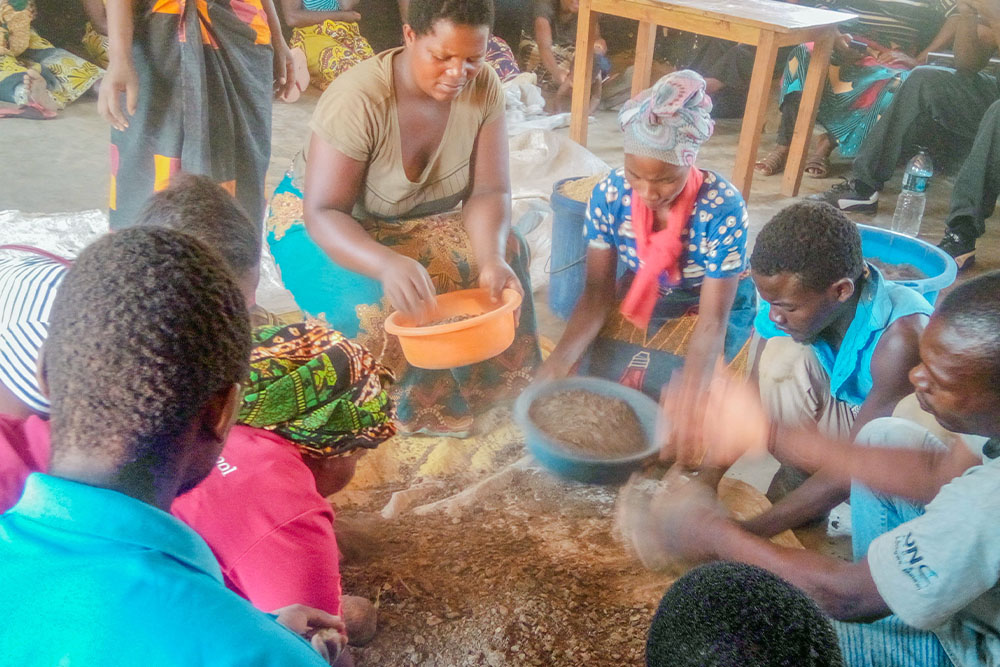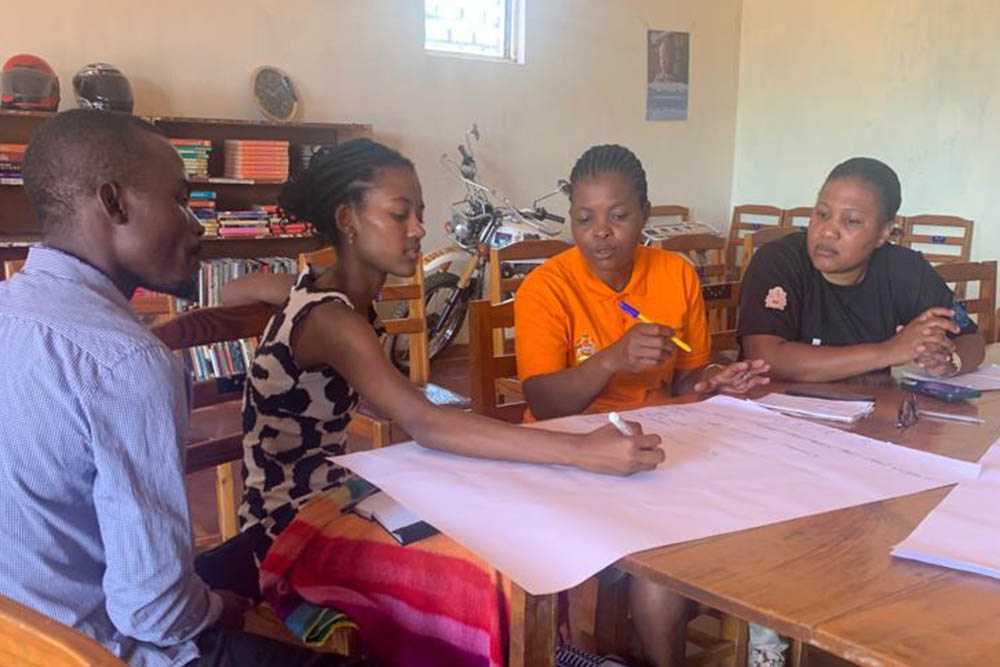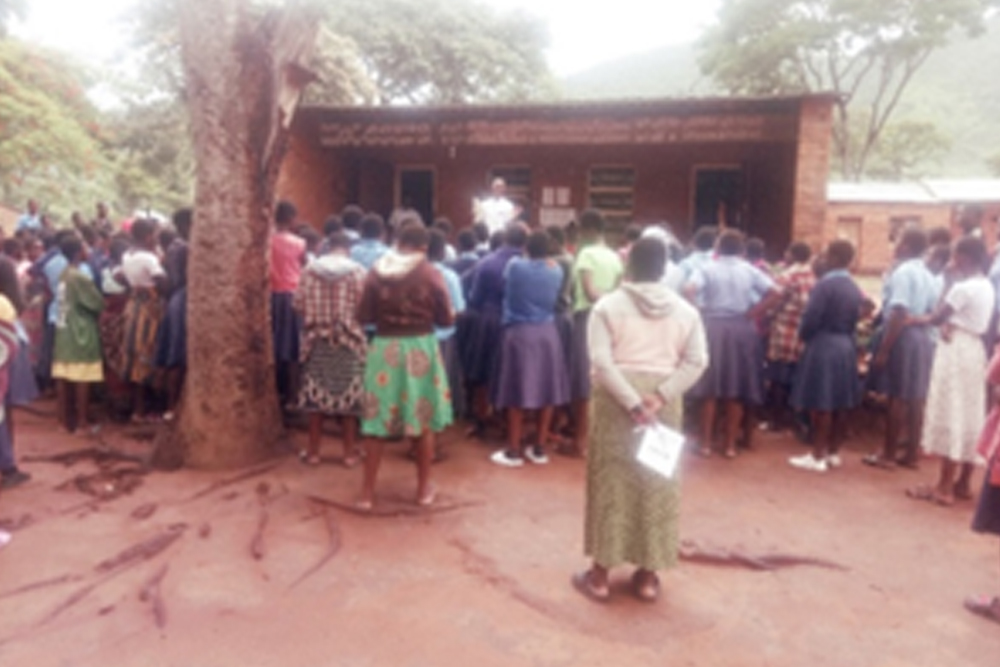Our Work
Recent Works
Support Nutrition Integrated Component (SNIC) is a child and mother nutrition project Implemented by Women’s Hope for Change in conjunction with Ministry of Health implemented in Mchinji district where initially was in Traditional Authority Nyoka. Where it has been implementing the project for three years. During this period, project beneficiaries have been exposed to various ways of managing the project on their own by sourcing required nutritional food stuff in their strategic points at village level for communal use and at every house hold for family use by using low cost crop production methods. To kick start the project activities, relevant structures had to be made aware of the project for support that would lead continued project running. The only way to enable such development is to involve relevant structures from organization level to beneficiaries. In view of this, the organization had to inform these structures at the onset of the project. It was very logical to do briefing for such structures. Briefing was done to the board of directors for the organization and District Nutrition Consultative Committee with comprehensive information about the organization activities for their consent. The organization also oriented Health Surveillance Assistants on the project in their respective areas for their participation since they live in the project impact areas and they are direct implementers of the project where they represent the government. This was to prepare them to participate in the project through project stages so that they are fully aware of what the project was impact and sustainability after project phase out. After the board and DNCC approved the plan for activities be done, the organization kick started implementation of project activities in the designated areas in collaboration with ministry of health through nutrition department to execute project activities.
An awareness targeted all people at child bearing age. Included were the adolescents in all strategic places in the project impact areas like in schools where early pregnancy vulnerability is obvious. Such places need such information to encourage learners the importance of preventing unplanned pregnancies so that they complete their education at all levels. Narration: A family planning nurse addressing school girls on the importance of family planning methods use since they are in the pregnancy vulnerable group if they cannot abstain. 58 girls attended the meeting During the feed-back meetings held in the communities, negative attitude was cleared by family planning hospital team which explained and ironed out such suspicions and beliefs people have to encourage men use family planning methods just women do. Family Planning Role model Case. During the campaign, one courageous man offered in public to be advised on family planning methods with his wife in public. This was an inspiring role model in the village. It is hoped that many will follow suit in due course. It was also found out that men do not attend under five clinics and antenatal clinics with their wives.
Traditionally, men do not take big role in the access of services for the under-fives. It is culturally envisaged as women role. This is the culture that needs lots of efforts to change the mind set of men that they should fully be involved since they are directly involved in making a decision on family sizes. The attitudes of men alluded to above have a very big effect on family planning for men participation and support which if dealt with can eventually have a positive impact on having manageable family sizes. In most of the families, family planning efforts are frustrated by men who think the number children brings them honor yet they do not consider very crucial aspects of care and upbringing of many children in a family with limited resources
Community Dialogue on Family Planning
Discussions were done at community level where many people attended and participated in the subject matter. It was very encouraging that people shared information on their own and those who understand made it very clear testimonies and encouraged those who with some reservations in family planning practices. It was very encouraging again since the village leaders were in attendance and supported the issues of family planning as one way that will contribute to sound manageable family sizes in their villages that affect issues of limited land space as one example. 41 people attended the meeting of which 11 were men.
People pledged their commitment to further discuss with their life partners to practice family planning methods with support from their nearest health facilities. Finally, village leaders pledged to continue encouraging their people in their villages on the importance of family planning so that gradually there would be manageable family sizes in their villages. Men were encouraged to participate in the dialogue of family planning since men generally have low participation in the subject matter.
Low cost crop production mechanism
Nutrition is directly associated with required food availability and the quality of the food available. This is relies on successful crop production that depends on how much soil fertility for bumper crops yield. Due limited land for farming, people have been growing crops on the same land for long time which has depleted soil fertility. Therefore to realize good crop yields requires soil fertility boosters. People have used chemical fertilizers for good crop yields which is now very expensive that has limited its use by subsistence farmers for it is very difficult for a subsistence farmer to afford even one bag of fertilizer. The price of one 50 kg bag would be the cost of four bags previously. To this effect, alternative ways to produce required quantities have been encouraged so that farmers can still produce the expected amounts of farm produce by using low cost means. The situation has resulted in the use of low cost fertilizers called Mbeya organic fertilizers.Recent works
2020- Now
2020 - Now



